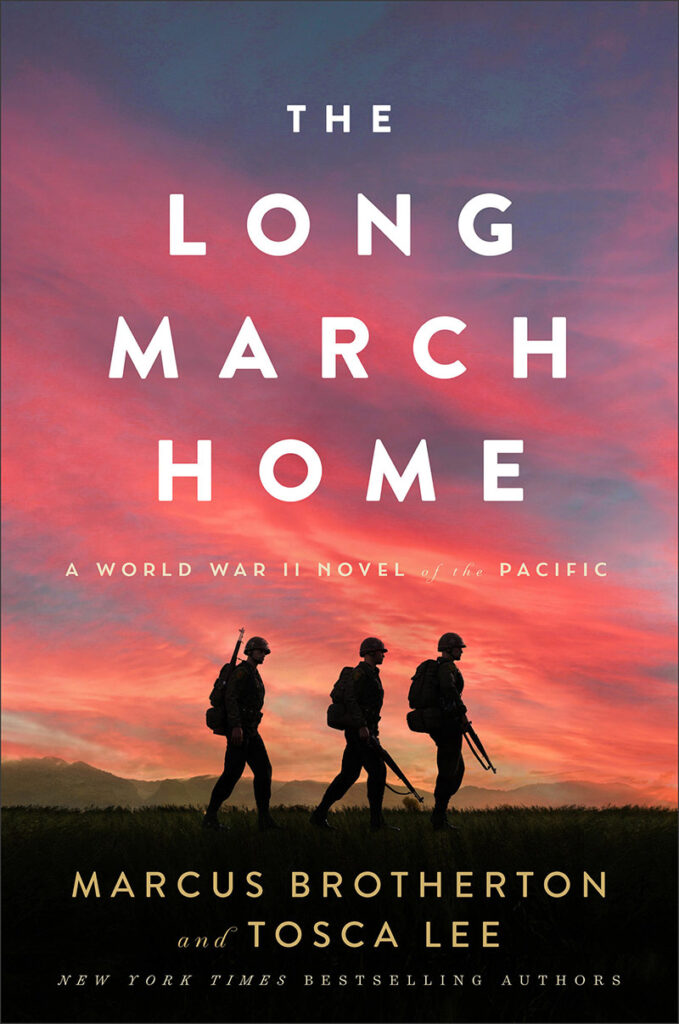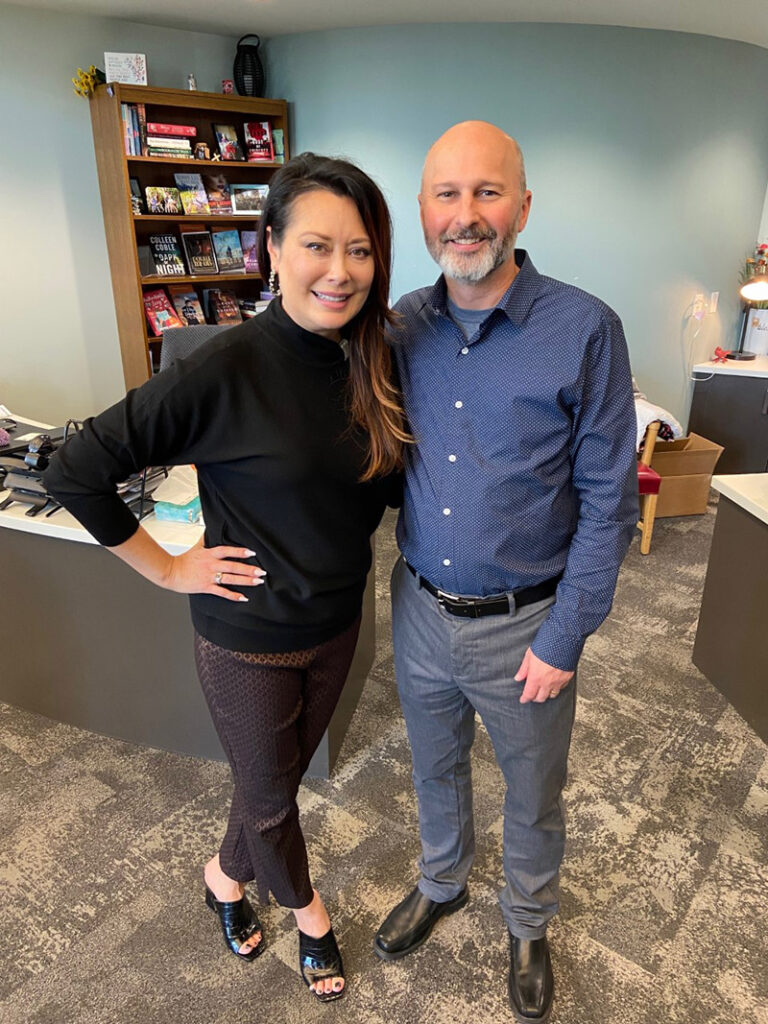Memorial Day should be about honoring those who lost their lives while defending this country. Two books have recently been published that highlights the War in the Pacific during WWII where America fought against Japan. The first book by Marcus Brotherton and Tosca Lee, titled, The Long March Home, is a fictional account of how three friends enlisted and were sent to fight in the Philippines. After reading that account, readers will want to understand and educate themselves about this part of the War that has taken a backseat to the European Theatre. To comprehend everything people should read To the End of the Earth by John McManus, non-fiction book three of the Pacific War Trilogy.

The Long March Home opens with Pearl Harbor, moves to the American defeat in the Philippines by the Japanese in 1942, the Bataan Death March, the POW camp O’Donnell, the transporting of POWs to Japan with the “Hell Ships,” and the aftermath. It is a story of friendship, courage, sacrifice, and love between three friends Jimmy, Hank, and Billy, as they struggle to survive and return safely back home.
Both books include graphic descriptions of what Americans POWs were made to endure by the Japanese. Many people do not know about the horrid conditions, and the brutality of the Japanese to the American POWs. During Memorial Day Americans can reflect on the bravery of these heroes who died because of Japanese brutality.

Below is an interview with Marcus Brotherton and Tosca Lee
Elise Cooper: With Memorial Day coming up how do you feel?
Marcus Brotherton: “Memorial Day serves as a poignant reminder that freedom is not free. Liberty is extremely costly. Courageous men and women have laid down their lives for us, and because of their gift we are able to live lives of purpose. The day prompts gratitude, humility, and new resolve.”
Tosca Lee: Memorial Day, for me, is an important reminder to reflect on every part of American life that I hold dear, the price that was paid for freedom, and how I might best honor and celebrate that liberty with gratitude and purpose in my daily life.
EC: How did you get the idea for the story?
MB: The idea started in 2008. I had been the writing partner for Lt. Buck Compton, one of the original Band of Brothers. He wrote a book, Call of Duty. He would have a clear memory of the events that happened during WWII. He talked about the difficult conditions he faced but remarked “at least I was not fighting in the Pacific. Those guys had it rough.” This stayed with me for years. I interviewed veterans from the Pacific in 2013. I also read a book about veterans who had to participate in the Bataan Death March. I decided to write a novel about it because I wanted to immerse the readers and to shine a light on these veterans.
TL: We wanted to shine a light on these unsung heroes of the Pacific Theatre. The personal stories they told us were extraordinary. Readers gain insight of what family members have gone through. It has been such an honor to write about the price these people paid.
EC: What was the process?
MB: I worked on a manuscript for seven years by myself. I brought in a collaborative writer, Tosca Lee. We were familiar with each other’s writing style.
EC: Did you write military books before this one?
TL: I did not but did write historical fiction. When Marcus called, he told me about the book concept of having three young friends serving in the Philippines and having to go through the Bataan Death March. I never heard of it. I was very ignorant of what goes on in the Pacific theatre.
EC: We all know about the Nazi atrocities but not a lot of people know about the Japanese atrocities?
MB: Yes. They tortured, killed, and bullied the American POWs. We wanted to help shine the spotlight on this. There is a scene when the characters are on the Bataan Death March. After a man collapses another solider tries to help him. “One of the guards marching alongside his column runs toward them…he kicks the wounded man to the ground, lifts his rife, and blasts the Good Samaritan in the head.”
TL: The atrocities that did happen were inspired by true accounts. There is a book quote where a Japanese officer tells one of the characters, “We allow you to live but you have chosen a fate worse than death. If you do not obey or prove yourself, you will be shot.”
EC: There were a Filipina who fought the Japanese?
TL: Felipa Culala was real. She was fighting for the freedom of her country along with allied soldiers.
EC: What role did the Bataan Death March have in the story?
TL: We start before the Death March, about four months earlier. Those who survived the Japanese invasion were subjected to the March. Those who survived the March had to endure some 41 months of captivity. We wanted to show what life was like before the march, during the march, and after the march. This includes the Hell Ships where the American POWs were transported to Japan. Looking back, it is incredible to think how any one person could survive all of this.
EC: Why Claire, the female lead in the story who is the love interest back home?
MB: It became important because the story of the march itself is very difficult. It is hard to plunge a reader into that amount of horror for a long time. Claire’s story lifts the reader up every so often. Through her we were able to show the difficulties on the home front during the War years.
TL: The scenes with her are about every fourth chapter. It is meant to give a reprieve. The importance of the backstory, the coming-of-age story, and the romance is meant to heighten the stakes personally for the guys and gives an important reprieve of what the boys went through. It is not just war-war-war all the time.
EC: The three characters Jimmy, Billy, and Hank-how would you describe them?
TL: Billy is the jokester, the younger brother figure, a happy go lucky person. Billy represents lost potential and lost innocence. Hank is the “bad boy,” a rule breaker, the one everyone looks up to. Jimmy is a “good boy,” a rule follower, who stays out of trouble. Through them readers do not see black and white, issues are not clear, but have an ambiguity.
MB: This book raises an important question about friendship. We wanted to explore how far would you go for your friends. THANK YOU!!
